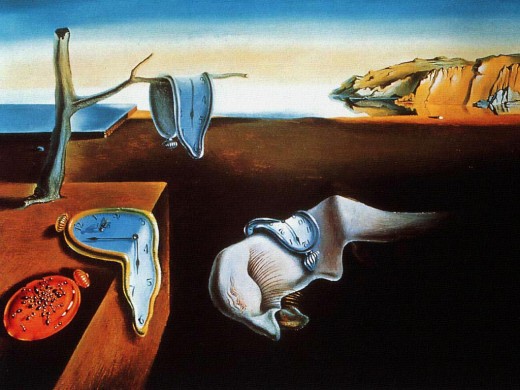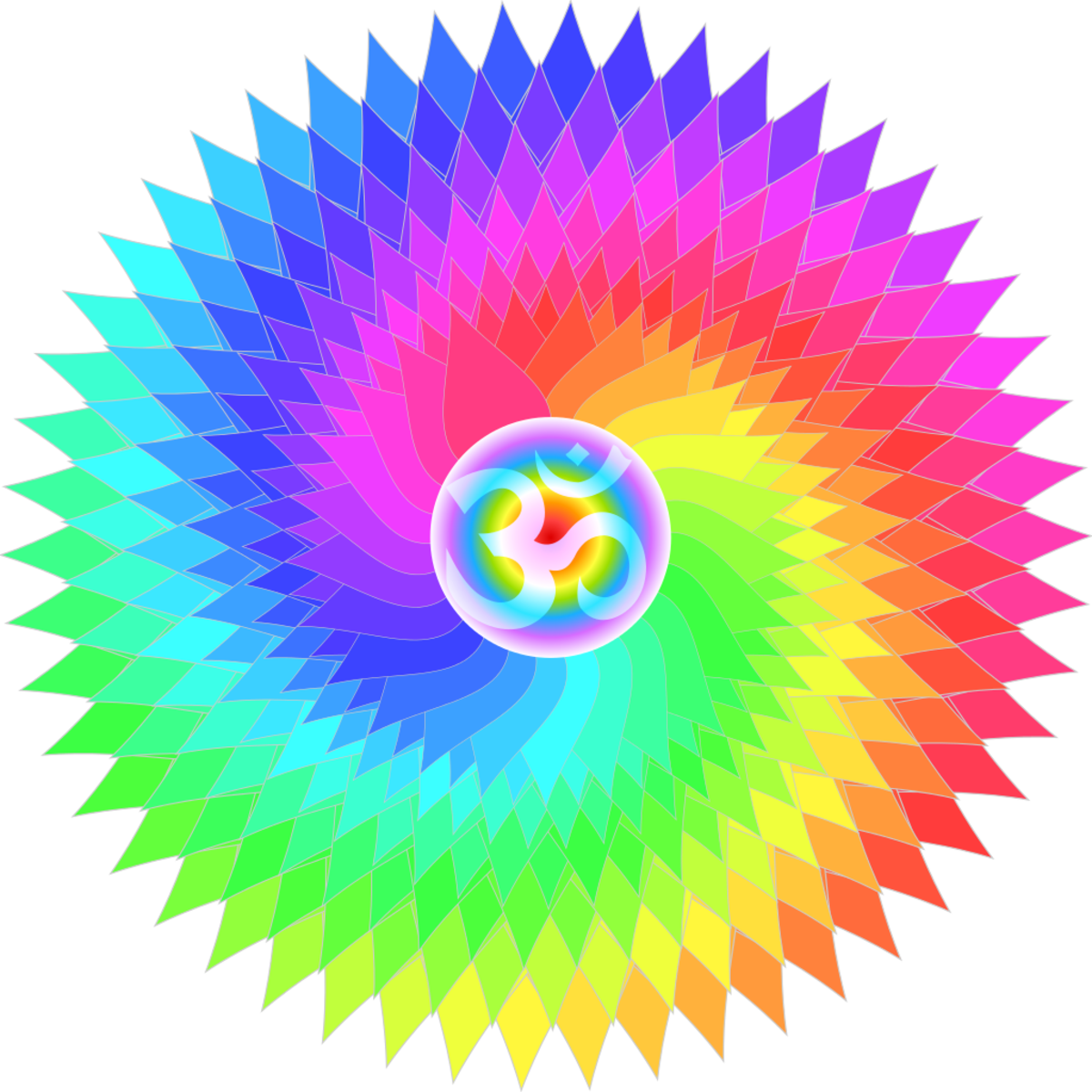Time Explored

This hub is inspired by questions jcnasia, a writer on Hub Pages, asked me in response my Hub on entropy. The answer was way too long, as you can see, so I made it into a hub. The questions asked are typical questions people who believe in ID ask so I won’t address this specifically to jcnasia, but rather to a general audience. I will however, use the original questions as reference.
"It doesn't satisfactory answer the question: Does time have a starting point?"
jcnasia was referring to my hub on entropy. Of course I wrote the hub on entropy to show how the simple becomes the complex and how disorder naturally becomes order. These are the questions that preoccupy the person interested in ID, and entropy is usually erroneously sighted as a reason there must be a god to order things due to the "disorder" that entropy causes.
But in fact, entropy is what causes order, not disorder. So that entire argument is wiped out by a clear understanding of what entropy is, and not what it is mistakenly thought to be. But funny enough, time is another thing entropy has a lot to do with.
So what about time? The laws of entropy show the arrow of time. Going back to what I said in the hub: "the heat from the pan goes away from the pan into the colder room. It never happens the other way around, ever" This is what is known as the arrow of time.
In fact, another way to describe entropy is as an arrow of time that only flows in one direction.
In the quantum world atoms can move in either direction of time without becoming qualitatively different in either case. But entropy seems to move in only the one direction.
A cause always predicts its effect in that it has to happen before the event it affects. A catcher will never catch a ball before a pitcher throws it. You can not invent a telephone before you have discovered electricity and how to make wire etc. That's known as the causal arrow of time.
So due mainly to entropy time seems to us to only flow forward.
But the quantum arrow of time is a little different. It is "symmetrical" according to the Schrodinger equations.
Meaning that it flows both forward and backward. But due to what is known as quantum decoherence that effect is filtered out when it gets to the macro level and should never be witnessed by us. Again, quantum decoherence is linked to thermodynamic entropy.
In physics we talk about atoms being in symmetrical time. That means that how they behave in forward time is exactly the same as how they would behave in reverse time. Scientists cannot find an arrow of time on the quantum level. Whatever you do to the quantum, if you play it back in reverse there is no difference and no laws of physics are violated.
But it does not mean there is no arrow of time in the quantum and scientists are actively looking for one. The only avenue that is promising so far comes from the behavior of electrons. But the experiments that might confirm this idea or falsify it are, to say the least, complex and expensive. In any case, no time machines any time soon if ever.
The arrow of time produced by entropy is why we are responsible for our acts and held accountable. Once done an act cannot be reversed. If that was possible we could just go back and not do what we did, like we can in many video games.
Einstein, of course told us that time is relative to space and intimately connected to it. They are so connected that it is often called space/time denoting that they are basically the same thing or aspects of the same thing. No space or distance, no time. This is why it was postulated that if the rapid expansion of the universe started with almost infinitely compressed energy there could be no time in a singularity because there is no space.
However, this is not known to be a fact. For instance, if I had a machine that could shrink things to one inch in height, put you in a room with no windows and a ruler, your measurement of things in the room would remain the same large or small and you would notice nothing different. So even in such a compressed state it might be possible that relatively speaking a form of time/space could still exist. After all, another example is seen in the atom itself. The distance between a nucleus and its electrons is relatively larger than between our earth and the sun. Within an atom there is mostly “empty” space. Empty as defined in the hub Entropy Explained. There is no way to know whether or not the universe is a giant black hole. If it is then in reference to a body outside it our universe might seem almost infinitely compressed.
The fact is we can’t know. So the rule in science is not to speculate when talking about it. So we say nothing can be known about the physics in a singularity. However, more and more this idea of a singularity has been linked to black holes. Some interpretations call it a black hole instead of a singularity. We are studying those and finding out about their laws of physics. So perhaps a definitive answer will come from there.
So, does time have a starting point?
The question/statement was: “Case 1: Time has a starting point. But if everything in the universe is cause and effect like you say, then something outside of time had to cause time to start. And, something had to cause that something to cause time to start. And this is nonsense to have cause and effect events take place outside of time. So, we can rule out this first case”.
I’ve already answered some of this above. But to answer the question definitively we would have to be sure of a lot of things we are currently not sure of. BB theory is under revision once again because recently there has been information found that seems to indicate it may not be possible the way we had thought. In other words the basic model may be flawed. As I have said in other hubs, Penrose is proposing a new model in which the universe is much much older than we thought by trillions of years. Possibly infinite. That there was not one expansion, but many. Each expansion and stable period he calls an eon, and apparently we can know something about past eons. Not all the information is lost. But we will have to see where that theory goes.
This is why the scientific minded person never invests any faith in the findings of science, and particularly not cosmology. While many of the laws of physics are well known facts, interpretations of cosmology such as the BB are not. They are models or interpretations. Most of the time not even meant to be taken as fact, just working models. Too bad some people don’t know that.
As speculation goes and to answer the question of whether or not time had a beginning, there may have been many beginnings and dormant periods of potential. We don’t know. We do know it exists now.
So what if time has always existed in one form or other? The next question was:
“If energy moving from higher to lower potential energy is the cause of every effect, then if time does not have a start, there would be an infinite stream of these events which each leaving the universe with less potential energy. Therefore, no matter how much potential energy the universe had at a point an infinite time in the past, it would have no potential energy right now. But there is potential energy,”
Well no. It would leave the universe with nothing but potential energy in a state of complete equilibrium. But I understand your point. This would only be the probable case if the universe was a closed system. Eventually the clock would wind down due to entropy. But we are not sure it is a closed system. In other words there is no way to know if there are other universes or objects outside ours that affect ours. There have been many theories of superverses, or a collection of universes. Again, I wouldn’t put money on any of them but they may lead to something eventually.
The fact is we don’t know yet what is going on. Currently we think the universe is flat and open. It is also expanding. So eventually because of the expansion the universe end up in "heat death" if no other process is at work. Penrose predicts there is. But expansion is the thing that led to BB in the first place by reversing time until all energy in the universe is almost infinitely compressed. If it is expanding it must have started out much smaller. The question is how much smaller?
Einstein thought the universe was static as did everyone else until Hubble came along. But he discovered that if it was, the mass of the universe should have made it eventually fall in on itself. So he created the cosmological constant which is the amount of repulsive force the universe would need, coming from the vacuum of space, to keep it static. But it turned out it wasn’t static. He thought it was the worst prediction he ever made. But it turns out he was probably right. There seems to be a repulsive force in the vacuum because the universe seems to be accelerating. Some call it dark energy and dark matter now. Being right for the wrong reasons is nothing new to science or human beings in general.
Dark matter and energy may be something coming from outside the universe. We don’t know. Probably not.
So we are probably looking at a beginning of the universe at some point. But energy cannot be destroyed nor created. So it has potentially always been around in one form or another. Possibly as another universe at another point in “time”. Some postulate that the universe is traveling through a black hole. One theory is that it is a black hole, as I’ve already stated.
In other words we do not know yet with any certainty and all our models are only possibilities based on observation and theoretical physics rather than the certainty of hard science. It’s a work in progress.
But philosophically speaking, time can be seen as an ever changing now rather than a straight line from past to future. In that case no past exists to go back to and no future pre-exists to go forward to. All events happen in a timeless space, and time is only relevant as way to measure movement in that space. Don’t worry, your watch is still relevant for that four o’clock appointment.
As humans we cannot get away from feeling linier asymmetrical time. It may be an illusion but it is a convincing one. Certainly not something anyone in any field of study has a complete grasp of.
Now to the point of these questions
“It appears to me that naturalism cannot answer the question about time, not because we just have figured out the answer yet, but because of inherent contradictions”
The problem is that a god doesn’t answer these questions any better.
In reference to this statement: “But if everything in the universe is cause and effect like you say, then something outside of time had to cause time to start. And, something had to cause that something to cause time to start. And this is nonsense to have cause and effect events take place outside of time.”
The problem is still that you can ask, who made that god and then who made the god that made that god? You can do that infinitely. So the answer is usually: God always was and always will be. Well this is a fine assertion and it solves the problem. But there is one issue we have with it. There is no physical proof of a god. The eternal first mover is postulated because it stands to reason that if there were ever a “time” when nothing at all existed in or out of a universe, there would be nothing now. You can’t get something from nothing.
And of course nothing is not a state of existence it is the absence of existence. So this is the proof for a god or first mover that conveniently always was and always will be. I have a hub on this ontological argument.
Aquinas, of course, said this had to be the Christian god. However, it doesn’t have to be, There is also nothing that says it has to be a being nor that it has to have intelligence. None of that is implied nor addressed in the proof itself. It just means something, whatever it is, has got to have existed without ever not existing.
So let’s look at the first law of thermodynamics again. Energy/mass cannot be destroyed and cannot be created. Here we have a substance that is by all accounts always been in one form or another. So from the Physicalist perspective this substance is what likely created all things, and indeed it is what all things that exist in real terms are made of. So the nature of energy/matter is the process of existence. In theistic terms, god is not a being, it is the nature of being.
Now, the other thing about the theistic god is that it is said to be outside time. What the heck does that mean? There is no time where god lives? Well then the objection: “this is nonsense to have cause and effect events take place outside of time.” must apply to the Christian god as well. Or does the Christian god make things happen without cause or indeed without a reason? A reason of course being a cause. That doesn’t seem to be what theists mean.
In fact theists have no idea what they are talking about because they know as much about time as physicists do. Nothing. For there to be no time in heaven, going by physics, there would be no space. Hence god would be a compressed mass, But of what? Energy?
They will tell us we cannot know how god works or the details of his world. But if that is true then neither can a theist and so they are just speculating that god lives in a timeless state because it suits their purpose. Their purpose of course is to convince everyone that this god exists and is separate from what it “created.” As well as that it is perfect and knows all and sees all in advance. It couldn’t do that if it was bound to time or space or distance could it?
Sounds more and more like the life of a singularity. Isn’t that ironic? But again, a god is only an implication and one interpretation of a logical philosophical argument. It boils down to: you can’t get something from nothing.
Everything in the universe is cause and effect. The logical alternative to a god right now with what we do know, is a natural process. It is as simple as that. The theists do not have all the details of how god did it and we don’t have all the details of the process worked out yet.
But the theist generally isn’t looking. They say that “god did it” is the answer. But it doesn’t answer anything. It doesn’t answer how it all works, which is what people like me are really interested in. That’s where science comes in.
The difference between the physicalist and the theist is that we can point to “god” and study it, finding out what its secrets are. And in so doing find out what we are. The theist cannot point to their god nor even show that it actually exists outside their imagination. Their certainty comes from faith. Ours comes from the uncertainty of the quest, and the knowledge that we don’t care if we are right or wrong in the end, as long as in the end we find out what is really going on. .
If in the end we find their god, we’ll let it know they are looking for it.









